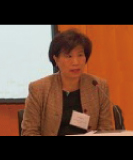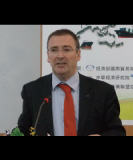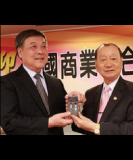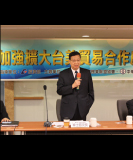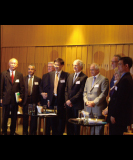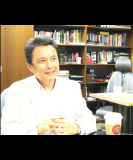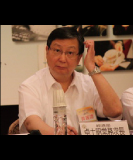You are browsing > Service in Taiwan > Development
Co-conveners of e-commerce negotiations: We are seeing convergence being built but need to move fasterWTO
WTO members participating in the negotiation of rules on e-commerce continued their work to streamline the negotiating text at a plenary meeting on 17 November. The co-conveners — Australia, Japan and Singapore — stressed that participating members keep working in small groups to narrow gaps and accelerate progress, particularly on the issues of electronic signatures and authentication, consumer protection and spam. They noted: “We are seeing convergence being built but need to move faster”.
The facilitators of small group discussions reported on the work undertaken in the last few weeks to bridge differences on text proposals covering online consumer protection, paperless trading, open government data, open internet access, customs duties on e-commerce, and electronic signatures and authentication. The co-conveners acknowledged progress made thus far and encouraged members to accelerate the pace of work in the next two weeks. They encouraged the facilitators to take an assertive approach to coordinating the work of the small groups.
Participants discussed topics that had been scheduled for consideration in the postponed March and April-May negotiating rounds, namely cyber security and options for capacity building and technical assistance.
Ambassador George Mina (Australia) said members needed to develop a modern set of new digital trade rules to unlock the potential of the digital economy. He added that the consolidated text is an important milestone towards that objective.
Amb. Mina noted that the deadline for new proposals had passed and that the latest submission was from the United Kingdom.
In his opening remarks, Ambassador Hung Seng Tan (Singapore) asked proponents to ensure that their proposals enjoy a reasonable degree of support from members. He invited them to consider how to refine or rethink their proposals to gain wider traction. He declared that the co-conveners are ready to engage in the work of the small groups to bridge gaps and identify common landing zones in the negotiations. He noted that the consolidated text is a stepping stone to advance the negotiations in 2021. He said the work ahead is a quest for progress rather than perfection.
Ambassador Kazuyuki Yamazaki (Japan) in his concluding remarks said the objective is to ensure an open, transparent, inclusive process and that the detailed reports provided by the facilitators are essential in that regard. He added that the “clean text” is now within reach in some leading areas such as online consumer protection, electronic signatures and authentication, and spam, and that the initiative could show good progress next month. He said that the initiative needs to achieve as much progress as possible in streamlining the consolidated text in other areas such as data provisions and encouraged the facilitators to be more ambitious in doing so.
In an earlier plenary meeting on 5 November, members discussed the streamlined text on personal information/data protection and ICT products that use cryptography, i.e. certain codes and methods to protect information and communication.

